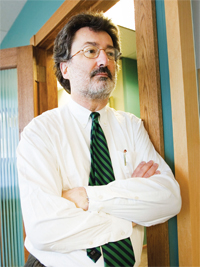 Mention the Joseph Groia incivility case to any Ontario lawyer, and it will incite a reaction. Nearly everyone has an opinion — and those who don’t have questions.
Mention the Joseph Groia incivility case to any Ontario lawyer, and it will incite a reaction. Nearly everyone has an opinion — and those who don’t have questions.
The Law Society’s hearings into the Groia matter will resume in January. At issue is Groia’s conduct while defending John Felderhof, former vice-chairman of Bre-X Minerals Ltd., against insider trading from 1999 to 2001. LSUC alleges Groia was rude and uncivil; Groia says he was just doing his job.
That Groia is facing such a charge nearly a decade after the fact, and that it’s being put forth without any preceding complaints from the presiding trial judge, have prompted vigorous debate within the legal community.
Why, then, has Groia been singled out?
Fellow criminal lawyer Edward Greenspan isn’t sure about this question’s answer, but he does worry about the implications. “I think these kinds of prosecutions are going to have a chilling effect on lawyers,” he says. “If a citizen is in a fight for their life, the trial lawyer should not have to give themselves a sedative before they go into a courtroom in order to avoid vigorously defending their client, out of fear of appearing uncivil.”
It’s a symptom of what Groia and others have begun to call “the civility movement,” and what some within the legal community view as a sea change that will usher in a new era of fear and self-censorship; Groia cites recent incivility charges against colleagues Andrew Tulk and Kevin Murphy as evidence. He says the focus on courtroom comportment misses the point of the lawyer’s primary duty: a “commitment to the interest of our clients who we are duty-bound to serve.”
But not everyone in the profession is alarmed by the recent attention given to courtroom incivility. Without commenting directly on the Groia case, Alan Mark, the Advocates’ Society’s second vice-president, says, “There is some conduct which everyone can agree is simply unacceptable. I think the bench has to be concerned with controlling both conduct in the courtroom and conduct outside the courtroom. If they don’t, then the Law Society is going to step in to fill the void.”
Readying to defend his client when hearings resume on January 30, Groia’s lawyer, Earl Cherniak, says, “He’s got an unblemished record, so I would argue that the consequences, if any, should be minimal. But I’m going to do my best to make sure it doesn’t get to that stage.”
Rude Boy
According to LSUC’s application to proceed against Joseph Groia for misconduct, here are the main charges against him:
- Disrespect of the Court resulting from a “consistent pattern of rude, improper or disruptive conduct” between December 22, 1999 and October 31, 2000;
- Failure “to act in good faith” and failure to engage in conduct considered “fair, courteous, respectful, and civil” between November 1, 2000 and April 5, 2001;
- Communicated with OSC prosecutors “in a manner that was abusive, offensive, or otherwise inconsistent with the proper tone of a professional communication from a lawyer” between December 22, 1999 and october 31, 2000.
What exactly Groia said to bring about these claims is not specified in the application, and, as Groia is quick to point out, the law Society allegedly charged him without having read the court transcripts in the first place. Groia’s lawyer Earl Cherniak adds: “following the issues that resulted in this case, Mr. Groia went on for another 90 or 100 days in the same case and nobody criticized him for anything.”
Photo: Jennifer Roberts

